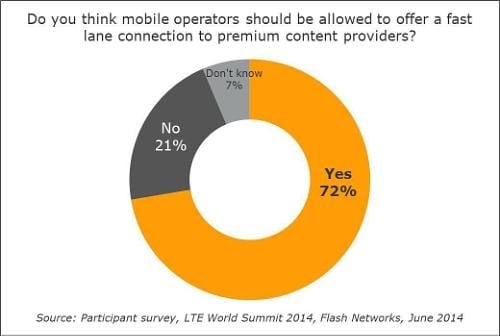Who is blamed more when service quality slips - Operators or Content Providers? Typically, it depends on the nature of the 'slip'. While dropped calls are often attributed to network operators, deterioration of content for example slow buffering of videos, non-accessability to certain rich content and delays in mobile commerce transactions are often blamed on the content providers. Although subscribers are quick to blame network operators and content providers for poor quality of service, operators are attributing bad subscriber experience to other factors that are beyond their control. According to Flash Networks, while 84% of subscribers hold operators responsible for video stalls and buffers, only 63% of operators agree that they are accountable for the quality issues given that 80% of them have already optimized or planning to optimize their video and data to deliver better end user experience.
Flash Networks,a company which provides mobile internet optimization and monetization solutions, announced these figures recently, based on their annual LTE survey. Flash Networks also shared more results, specifically on subscribers' take on having multiple quality of service (QoS) for premium content. It appears that more subscribers (74%) are in agreement with prioritization of service compared to service providers (69%). If the subscribers' votes are anything to go by, net neutrality will see fresh challenges especially with so many people around the world subscribing to premium content that necessitates prioritization in terms of quality of delivery for consistent and superior end user experience.
Flash also shared other insights on subscribers' preference for speed and how operators evaluate their networks on this criteria, the details of which are presented in the following infographics:

"Subscribers are demanding a superior quality of experience (QoE) and hold the operator responsible for it; but, at the same time, they are giving operators the green light to do what needs to be done to improve QoE by approving fast lanes for premium content. Our survey results demonstrate that operators recognize the need for mobile video and data optimization to stay competitive, and are continuously looking for acceleration technologies to enable them to speed up their LTE networks, and ultimately provide a better experience for subscribers."
- Eyal Hilzenrat, Vice President of Product and Marketing, Flash Networks




















